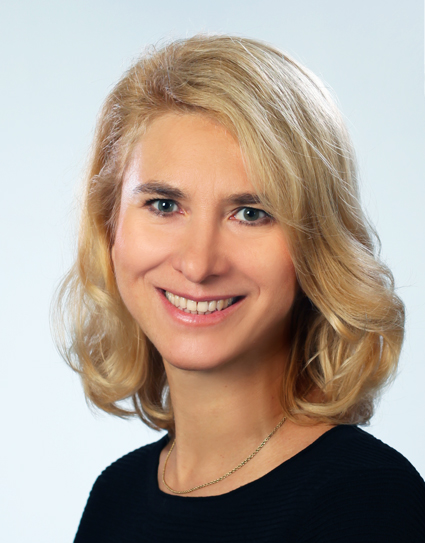With the emergence of a new strain of the virus that causes Covid-19 re-opening debates about the economic impact of the pandemic, the success of efforts to achieve global distribution of vaccines and the value of travel bans, we invited our panels to express their views on these issues.
a) Even without renewed Covid-19 restrictions, uncertainty about the health threat from the Omicron variant is likely to deliver a significant hit to economic activity from now through the first half of 2022.
b) If world vaccine supply continues to be limited, global social welfare would rise by more if those vaccines were made widely available across Africa (with support for effective delivery) rather than accelerating booster vaccinations in rich countries.
c) Imposing travel bans on countries where new Covid-19 variants are discovered will make it less likely that countries will reveal new variants to the rest of the world.
Of our 43 US experts, 42 participated in this survey; of our 48 European experts, 34 participated – for a total of 76 expert reactions.
Potential economic effects of the new variant
On the first statement about the likelihood of Omicron causing significant further damage to economic activity, just under half of respondents express uncertainty while a slightly smaller share agree.
Weighted by each expert’s confidence in their response, 6% of the US panel strongly agree, 37% agree, 54% are uncertain, and 3% disagree. Among the European panel (again weighted by each expert’s confidence in their response), 52% agree, 43% are uncertain and 5% disagree. Overall, across both panels, 3% strongly agree, 44% agree, 49% are uncertain, and 4% disagree.
Among the short comments that the experts are able to include in their responses, Christopher Udry at Northwestern, who strongly agrees with the statement, says: ‘I’m not sure of the timing, but as long as there is uncertainty about or confirmation of a health threat, activity will be slow.’ Nicholas Bloom at Stanford, who agrees, remarks: ‘It will be a hit, but not sure what “significant” means – I might think 0.1% to 0.5% of GDP, which is something but not huge.’
Others who agree outline possible mechanisms. Larry Samuelson at Yale notes: ‘Covid consumes resources and affects behavior, even apart from explicit restrictions, with detrimental economic effects.’ And Jan Pieter Krahnen at Goethe University Frankfurt comments: ‘Omicron tells us that the pandemic is here to stay for much longer. This should have significant present value effects.’
Austan Goolsbee at Chicago explains: ‘Just depends on how sick it makes people. But fear is the main driver of economic damage, not lockdown’, adding a link to his Journal of Public Economics study with Chad Syverson of the potential drivers. Jose Scheinkman at Columbia also alerts us to research indicating that economic contraction is caused by the virus and occurs regardless of social distancing laws: ‘See Sheridan et al. PNAS 2020 on economic effect of Covid-19 in Sweden in the absence of restrictions.’ Similarly, Robert Shimer at Chicago, one of a handful of respondents who disagrees, comments: ‘Uncertainty about Omicron will be resolved within weeks. If the outcome is bad, then the variant (not uncertainty) will hit the economy.’
Among the plurality of experts who say they are uncertain, several comment on our lack of knowledge about the new variant. Paul De Grauwe at the London School of Economics: ‘There is still so much uncertainty about the nature of Omicron that very little can be said about its implications for the economy.’ Lubos Pastor at Chicago adds: ‘Will depend on how deadly Omicron will turn out to be. If benign then we should be OK. We will find out in the near future.’ And Darrell Duffie at Stanford observes: ‘Perhaps yes, but there is also a decent chance that Omicron will be have high a R and low health impacts. That would be a good outcome.’
Others who vote uncertain point to additional factors. Christian Leuz at Chicago replies: ‘Not sure it will be significant and how to separate it from slow-down in activity in Europe due to rising infections even prior to new variant.’ And Aaron Edlin at Berkeley states: ‘People may be willing to take risks now. Future very unclear.’
Vaccines for Africa
On the second statement about whether getting vaccines into arms in Africa is more globally desirable than accelerating booster shots in rich countries, nearly three-quarters of the panelists agree.
Weighted by each expert’s confidence in their response, 25% of the US panel strongly agree, 49% agree, 22% are uncertain, and 4% disagree. Among the European panel (again weighted by each expert’s confidence in their response), 7% strongly agree, 67% agree, 23% are uncertain, and 3% disagree. Overall, across both panels, 16% strongly agree, 57% agree, 23% are uncertain, and 4% disagree.
Among the panelists who agree or strongly agree, William Nordhaus at Yale declares: ‘As close to clear as any question in Booth history [of IGM panels].’ Darrell Duffie adds: ‘Beyond its fairness, this strategy lowers risks of adverse mutations. Legacy Covid can be contained. Breeding new Covid variants is risky.’
Judith Chevalier at Yale agrees with the statement but adds: ‘Though the best answer seems to be substantial investment in BOTH.’ Antoinette Schoar at MIT also agrees but suggests: ‘The answer depends on the marginal effectiveness of a booster versus vaccinating more people, which is a topic of immunology not economics.’
David Autor at MIT says: ‘Social welfare of developing countries deserves great weight’; Christopher Udry adds: ‘Possibly even US social welfare; certainly global welfare’; while Kenneth Judd at Stanford, who says he is uncertain, argues: ‘There is a problem today but it is only because of the shameful lack of US leadership in 2020’, linking to his website comment on world supply of vaccines.
Several panelists express caution about the idea of global social welfare. Daron Acemoglu at MIT remarks: ‘Global social welfare is not well defined. Recovery in the West important for the world economy. But overall agree on humanitarian grounds.’ Aaron Edlin comments: ‘It depends what social welfare means. But lives may be saved by deploying vaccines where transmission and prevalence is highest.’ Jose Scheinkman notes: ‘Not sure about “global welfare” but externalities of vaccination including emergence of VOCs [variants of concern] justify reallocation of resources to Africa.’ And Robert Shimer concludes: ‘Global social welfare is hard to define, but this would save lives.’
A number of panelists who agree comment on the challenge of vaccine delivery and take-up. Carol Propper at Imperial College London states: ‘The issue is effective delivery support.’ Patrick Honohan at Trinity College Dublin concurs: ‘Yes, but “last mile” issues increasingly seem to be the binding constraint.’ And Nicola Fuchs-Schundeln at Goethe University Frankfurt says: ‘I agree, but it is not only Africa, and the effective delivery is a very important caveat.’
Similar concerns are voiced by panelists who say they are uncertain or disagree. Charles Wyplosz at the Graduate Institute, Geneva notes: ‘There are widespread reports that people are opposed to vaccination. There is no shortage of vaccines in South Africa, for instance.’ Pinelopi Goldberg at Yale adds: ‘So far Africa has not been much affected by Covid. The problem is more on the demand than on the supply side.’ And Steven Kaplan at Chicago responds: ‘My sense is that a number of African countries cannot distribute the vaccines they have.’
Others who are uncertain note the difficulty of making a trade-off between vaccines for Africa and boosters in rich countries. Richard Thaler at Chicago says: ‘Hard to administer the Pfizer and Moderna to much of Africa so the opportunity cost of those shots may be low.’ Larry Samuelson comments: ‘We need both to bring the pandemic under control; assessing the relative merits of either alone requires expertise I do not have.’ Nicholas Bloom adds: ‘Depends on who is getting the vaccine – older developed country citizens tend to have co-morbidities so may benefit from boosters.’
Travel bans
On the third statement about whether travel bans imposed on countries that detect new variants will reduce their willingness to announce such discoveries, nearly two-thirds of total respondents are in agreement. But there is a difference across the panels, with three-quarters of the US experts agreeing but only just under half of their European counterparts.
Weighted by each expert’s confidence in their response, 21% of the US panel strongly agree, 55% agree, 18% are uncertain, and 6% disagree. Among the European panel (again weighted by each expert’s confidence in their response), 21% strongly agree, 27% agree, 39% are uncertain, and 13% disagree. Overall, across both panels, 21% strongly agree, 43% agree, 27% are uncertain, and 9% disagree.
Among the comments of those who agree, Darrell Duffie notes: ‘The moral hazard seems clear. If one is punished for revealing, one is less likely to reveal.’ Nicholas Bloom adds: ‘The travel ban on South Africa is politics trumping policy – now no country will announce a new variant for fear of getting a travel ban.’ And William Nordhaus concludes: ‘Hard to know whether science or politics will win out on this one.’
There are some differences of opinion among the experts on the value of travel bans. On the one hand, Robert Shimer states: ‘Travel bans were and are misguidance, though it’s not clear how much this will affect variant revelation’; and David Autor comments: ‘Plus, this does almost no good. Vaccines effective, travel bans ineffective.’
In contrast, Joseph Altonji at Yale protests: ‘Bans do reduce incentives to reveal information, but that does not mean that travel bans are not warranted in some cases.’ Oliver Hart at Yale suggests: ‘There may be other ways to compensate countries for disclosing while still having travel bans.’ Larry Samuelson adds: ‘But I expect the effect to be quite small, given that a new variant cannot be concealed for long and revelation brings some advantages.
Several other panelists comment on this issue of whether countries are in practice able to conceal any discoveries of new variants. Austan Goolsbee remarks: ‘Not so easy to keep a secret with a massively contagious disease.’ Charles Wyplosz adds: ‘Could be. But few countries are equipped to detect variants early on and most of those who are equipped are unlikely to (be able to) hide.’ And Pinelopi Goldberg comments: ‘It is hard to hide Covid. And countries, especially in the developing world, need assistance from other countries, hence they share information.’
All comments made by the experts are in the full survey results for the US panel and the European panel.
Romesh Vaitilingam
@econromesh
December 2021
Question A:
Even without renewed Covid-19 restrictions, uncertainty about the health threat from the Omicron variant is likely to deliver a significant hit to economic activity from now through the first half of 2022.
Responses
Responses weighted by each expert's confidence
Question B:
If world vaccine supply continues to be limited, global social welfare would rise by more if those vaccines were made widely available across Africa (with support for effective delivery) rather than accelerating booster vaccinations in rich countries.
Responses
Responses weighted by each expert's confidence
Question C:
Imposing travel bans on countries where new Covid-19 variants are discovered will make it less likely that countries will reveal new variants to the rest of the world.
Responses
Responses weighted by each expert's confidence
Question A Participant Responses
| Participant | University | Vote | Confidence | Bio/Vote History |
|---|---|---|---|---|
 Franklin Allen |
Imperial College London | Did Not Answer | Bio/Vote History | |
|
|
||||
    Pol Antras |
Harvard | Bio/Vote History | ||
|
|
||||
    Oriana Bandiera |
London School of Economics | Bio/Vote History | ||
|
|
||||
    Olivier Blanchard |
Peterson Institute | Bio/Vote History | ||
|
``significant'' is too strong. Too early to say.
|
||||
    Nicholas Bloom |
Stanford | Bio/Vote History | ||
|
It will be a hit, but not sure what "significant" means - i might think 0.1% to 0.5% of GDP, which is something but not huge
|
||||
    Richard William Blundell |
University College London | Bio/Vote History | ||
|
|
||||
    Elena Carletti |
Bocconi | Bio/Vote History | ||
|
|
||||
    Jean-Pierre Danthine |
Paris School of Economics | Bio/Vote History | ||
|
|
||||
    Paul De Grauwe |
LSE | Bio/Vote History | ||
|
There is still so much uncertainty about the nature of omicron that very little can be said about its implications for the economy
|
||||
    Jan Eeckhout |
UPF Barcelona | Bio/Vote History | ||
|
|
||||
    Ernst Fehr |
Universität Zurich | Bio/Vote History | ||
|
|
||||
    Xavier Freixas |
Barcelona GSE | Did Not Answer | Bio/Vote History | |
|
|
||||
    Nicola Fuchs-Schündeln |
Goethe-Universität Frankfurt | Bio/Vote History | ||
|
|
||||
    Jordi Galí |
Barcelona GSE | Bio/Vote History | ||
|
|
||||
    Francesco Giavazzi |
Bocconi | Did Not Answer | Bio/Vote History | |
|
|
||||
    Rachel Griffith |
University of Manchester | Bio/Vote History | ||
|
|
||||
    Veronica Guerrieri |
Chicago Booth | Bio/Vote History | ||
|
|
||||
    Luigi Guiso |
Einaudi Institute for Economics and Finance | Bio/Vote History | ||
|
|
||||
    Sergei Guriev |
Sciences Po | Bio/Vote History | ||
|
|
||||
    Patrick Honohan |
Trinity College Dublin | Bio/Vote History | ||
|
Unless the virulence of omicron proves to be less than previous variants
|
||||
    Beata Javorcik |
University of Oxford | Bio/Vote History | ||
|
|
||||
    Jan Pieter Krahnen |
Goethe University Frankfurt | Bio/Vote History | ||
|
Omicron tells us that the pandemic is here to stay for much longer. This should have significant present value effects.
|
||||
    Botond Kőszegi |
Central European University | Did Not Answer | Bio/Vote History | |
|
|
||||
    Eliana La Ferrara |
Harvard Kennedy | Did Not Answer | Bio/Vote History | |
|
|
||||
    Christian Leuz |
Chicago Booth | Bio/Vote History | ||
|
Not sure it will be significant & how to separate it from slow-down in activity in Europe due to rising infections even prior to new variant
|
||||
    Thierry Mayer |
Sciences-Po | Did Not Answer | Bio/Vote History | |
|
|
||||
    Costas Meghir |
Yale | Bio/Vote History | ||
|
|
||||
    Marco Pagano |
Università di Napoli Federico II | Bio/Vote History | ||
|
|
||||
    Lubos Pastor |
Chicago Booth | Bio/Vote History | ||
|
Will depend on how deadly omicron will turn out to be. If benign then we should be OK. We will find out in the near future.
|
||||
    Torsten Persson |
Stockholm University | Did Not Answer | Bio/Vote History | |
|
|
||||
    Christopher Pissarides |
London School of Economics and Political Science | Did Not Answer | Bio/Vote History | |
|
|
||||
    Richard Portes |
London Business School | Bio/Vote History | ||
|
|
||||
    Canice Prendergast |
Chicago Booth | Bio/Vote History | ||
|
|
||||
    Carol Propper |
Imperial College London | Bio/Vote History | ||
|
|
||||
    Imran Rasul |
University College London | Bio/Vote History | ||
|
|
||||
    Lucrezia Reichlin |
London Business School | Did Not Answer | Bio/Vote History | |
|
|
||||
    Ricardo Reis |
London School of Economics | Bio/Vote History | ||
|
|
||||
    Rafael Repullo |
CEMFI | Bio/Vote History | ||
|
|
||||
    Hélène Rey |
London Business School | Did Not Answer | Bio/Vote History | |
|
|
||||
    Antoinette Schoar |
MIT | Bio/Vote History | ||
|
|
||||
    Kjetil Storesletten |
University of Minnesota | Bio/Vote History | ||
|
|
||||
    Daniel Sturm |
London School of Economics | Did Not Answer | Bio/Vote History | |
|
|
||||
    John Van Reenen |
LSE | Bio/Vote History | ||
|
It's really hard to say as new info is still coming in. But rigth now does not look good.
|
||||
    John Vickers |
Oxford | Bio/Vote History | ||
|
|
||||
    Hans-Joachim Voth |
University of Zurich | Did Not Answer | Bio/Vote History | |
|
|
||||
    Karl Whelan |
University College Dublin | Did Not Answer | Bio/Vote History | |
|
|
||||
    Charles Wyplosz |
The Graduate Institute Geneva | Bio/Vote History | ||
|
Today, we don't know enough to make predictions even for the next few weeks.
|
||||
    Fabrizio Zilibotti |
Yale University | Did Not Answer | Bio/Vote History | |
|
|
||||
Question B Participant Responses
| Participant | University | Vote | Confidence | Bio/Vote History |
|---|---|---|---|---|
    Franklin Allen |
Imperial College London | Did Not Answer | Bio/Vote History | |
|
|
||||
    Pol Antras |
Harvard | Bio/Vote History | ||
|
Doesn't seem to only be an issue of vaccine supply at this point.
|
||||
    Oriana Bandiera |
London School of Economics | Bio/Vote History | ||
|
|
||||
    Olivier Blanchard |
Peterson Institute | Bio/Vote History | ||
|
you are asking economists questions that they are not qualified to answer. They will nevertheless...
|
||||
    Nicholas Bloom |
Stanford | Bio/Vote History | ||
|
Depends on who is getting the vaccine - older developed country citizens tend to have co-morbidities so may benefit from boosters.
|
||||
    Richard William Blundell |
University College London | Bio/Vote History | ||
|
|
||||
    Elena Carletti |
Bocconi | Bio/Vote History | ||
|
|
||||
    Jean-Pierre Danthine |
Paris School of Economics | Bio/Vote History | ||
|
|
||||
    Paul De Grauwe |
LSE | Bio/Vote History | ||
|
a no brainer
|
||||
    Jan Eeckhout |
UPF Barcelona | Bio/Vote History | ||
|
|
||||
    Ernst Fehr |
Universität Zurich | Bio/Vote History | ||
|
|
||||
    Xavier Freixas |
Barcelona GSE | Did Not Answer | Bio/Vote History | |
|
|
||||
    Nicola Fuchs-Schündeln |
Goethe-Universität Frankfurt | Bio/Vote History | ||
|
I agree, but it is not only Africa, and the effective delivery is a very important caveat.
|
||||
    Jordi Galí |
Barcelona GSE | Bio/Vote History | ||
|
|
||||
    Francesco Giavazzi |
Bocconi | Did Not Answer | Bio/Vote History | |
|
|
||||
    Rachel Griffith |
University of Manchester | Bio/Vote History | ||
|
|
||||
    Veronica Guerrieri |
Chicago Booth | Bio/Vote History | ||
|
|
||||
    Luigi Guiso |
Einaudi Institute for Economics and Finance | Bio/Vote History | ||
|
|
||||
    Sergei Guriev |
Sciences Po | Bio/Vote History | ||
|
|
||||
    Patrick Honohan |
Trinity College Dublin | Bio/Vote History | ||
|
Yes, but "last mile" issues increasingly seem to be the binding constraint.
|
||||
    Beata Javorcik |
University of Oxford | Bio/Vote History | ||
|
|
||||
    Jan Pieter Krahnen |
Goethe University Frankfurt | Bio/Vote History | ||
|
The if-condition in the statement is important here, for otherwise a strong production effort in Africa would have been a better response.
|
||||
    Botond Kőszegi |
Central European University | Did Not Answer | Bio/Vote History | |
|
|
||||
    Eliana La Ferrara |
Harvard Kennedy | Did Not Answer | Bio/Vote History | |
|
|
||||
    Christian Leuz |
Chicago Booth | Bio/Vote History | ||
|
|
||||
    Thierry Mayer |
Sciences-Po | Did Not Answer | Bio/Vote History | |
|
|
||||
    Costas Meghir |
Yale | Bio/Vote History | ||
|
|
||||
    Marco Pagano |
Università di Napoli Federico II | Bio/Vote History | ||
|
|
||||
    Lubos Pastor |
Chicago Booth | Bio/Vote History | ||
|
|
||||
    Torsten Persson |
Stockholm University | Did Not Answer | Bio/Vote History | |
|
|
||||
    Christopher Pissarides |
London School of Economics and Political Science | Did Not Answer | Bio/Vote History | |
|
|
||||
    Richard Portes |
London Business School | Bio/Vote History | ||
|
|
||||
    Canice Prendergast |
Chicago Booth | Bio/Vote History | ||
|
|
||||
    Carol Propper |
Imperial College London | Bio/Vote History | ||
|
The issue is effective delivery support.
|
||||
    Imran Rasul |
University College London | Bio/Vote History | ||
|
|
||||
    Lucrezia Reichlin |
London Business School | Did Not Answer | Bio/Vote History | |
|
|
||||
    Ricardo Reis |
London School of Economics | Bio/Vote History | ||
|
|
||||
    Rafael Repullo |
CEMFI | Bio/Vote History | ||
|
|
||||
    Hélène Rey |
London Business School | Did Not Answer | Bio/Vote History | |
|
|
||||
    Antoinette Schoar |
MIT | Bio/Vote History | ||
|
the answer depends on the marginal effectiveness of a booster vs. vaccinating more people, which is a topic of immunology not economics
|
||||
    Kjetil Storesletten |
University of Minnesota | Bio/Vote History | ||
|
|
||||
    Daniel Sturm |
London School of Economics | Did Not Answer | Bio/Vote History | |
|
|
||||
    John Van Reenen |
LSE | Bio/Vote History | ||
|
vaccine rates very low in some African countries
|
||||
    John Vickers |
Oxford | Bio/Vote History | ||
|
|
||||
    Hans-Joachim Voth |
University of Zurich | Did Not Answer | Bio/Vote History | |
|
|
||||
    Karl Whelan |
University College Dublin | Did Not Answer | Bio/Vote History | |
|
|
||||
    Charles Wyplosz |
The Graduate Institute Geneva | Bio/Vote History | ||
|
There are widespread reports that people are opposed to vaccination. There is no shortage of vaccines in South Africa, for instance.
|
||||
    Fabrizio Zilibotti |
Yale University | Did Not Answer | Bio/Vote History | |
|
|
||||
Question C Participant Responses
| Participant | University | Vote | Confidence | Bio/Vote History |
|---|---|---|---|---|
    Franklin Allen |
Imperial College London | Did Not Answer | Bio/Vote History | |
|
|
||||
    Pol Antras |
Harvard | Bio/Vote History | ||
|
|
||||
    Oriana Bandiera |
London School of Economics | Bio/Vote History | ||
|
|
||||
    Olivier Blanchard |
Peterson Institute | Bio/Vote History | ||
|
one of many potential effects. Many of the others work the other way.
|
||||
    Nicholas Bloom |
Stanford | Bio/Vote History | ||
|
The travel ban on South Africa is politics trumping policy - now no country will announce a new variant for fear of getting a travel ban.
|
||||
    Richard William Blundell |
University College London | Bio/Vote History | ||
|
|
||||
    Elena Carletti |
Bocconi | Bio/Vote History | ||
|
|
||||
    Jean-Pierre Danthine |
Paris School of Economics | Bio/Vote History | ||
|
|
||||
    Paul De Grauwe |
LSE | Bio/Vote History | ||
|
|
||||
    Jan Eeckhout |
UPF Barcelona | Bio/Vote History | ||
|
|
||||
    Ernst Fehr |
Universität Zurich | Bio/Vote History | ||
|
|
||||
    Xavier Freixas |
Barcelona GSE | Did Not Answer | Bio/Vote History | |
|
|
||||
    Nicola Fuchs-Schündeln |
Goethe-Universität Frankfurt | Bio/Vote History | ||
|
|
||||
    Jordi Galí |
Barcelona GSE | Bio/Vote History | ||
|
|
||||
    Francesco Giavazzi |
Bocconi | Did Not Answer | Bio/Vote History | |
|
|
||||
    Rachel Griffith |
University of Manchester | Bio/Vote History | ||
|
|
||||
    Veronica Guerrieri |
Chicago Booth | Bio/Vote History | ||
|
|
||||
    Luigi Guiso |
Einaudi Institute for Economics and Finance | Bio/Vote History | ||
|
|
||||
    Sergei Guriev |
Sciences Po | Bio/Vote History | ||
|
|
||||
    Patrick Honohan |
Trinity College Dublin | Bio/Vote History | ||
|
|
||||
    Beata Javorcik |
University of Oxford | Bio/Vote History | ||
|
|
||||
    Jan Pieter Krahnen |
Goethe University Frankfurt | Bio/Vote History | ||
|
Viruses spread with and without travel bans, I suppose...
|
||||
    Botond Kőszegi |
Central European University | Did Not Answer | Bio/Vote History | |
|
|
||||
    Eliana La Ferrara |
Harvard Kennedy | Did Not Answer | Bio/Vote History | |
|
|
||||
    Christian Leuz |
Chicago Booth | Bio/Vote History | ||
|
|
||||
    Thierry Mayer |
Sciences-Po | Did Not Answer | Bio/Vote History | |
|
|
||||
    Costas Meghir |
Yale | Bio/Vote History | ||
|
|
||||
    Marco Pagano |
Università di Napoli Federico II | Bio/Vote History | ||
|
|
||||
    Lubos Pastor |
Chicago Booth | Bio/Vote History | ||
|
Travel bans can only delay the spread.
|
||||
    Torsten Persson |
Stockholm University | Did Not Answer | Bio/Vote History | |
|
|
||||
    Christopher Pissarides |
London School of Economics and Political Science | Did Not Answer | Bio/Vote History | |
|
|
||||
    Richard Portes |
London Business School | Bio/Vote History | ||
|
|
||||
    Canice Prendergast |
Chicago Booth | Bio/Vote History | ||
|
|
||||
    Carol Propper |
Imperial College London | Bio/Vote History | ||
|
|
||||
    Imran Rasul |
University College London | Bio/Vote History | ||
|
|
||||
    Lucrezia Reichlin |
London Business School | Did Not Answer | Bio/Vote History | |
|
|
||||
    Ricardo Reis |
London School of Economics | Bio/Vote History | ||
|
|
||||
    Rafael Repullo |
CEMFI | Bio/Vote History | ||
|
|
||||
    Hélène Rey |
London Business School | Did Not Answer | Bio/Vote History | |
|
|
||||
    Antoinette Schoar |
MIT | Bio/Vote History | ||
|
|
||||
    Kjetil Storesletten |
University of Minnesota | Bio/Vote History | ||
|
|
||||
    Daniel Sturm |
London School of Economics | Did Not Answer | Bio/Vote History | |
|
|
||||
    John Van Reenen |
LSE | Bio/Vote History | ||
|
|
||||
    John Vickers |
Oxford | Bio/Vote History | ||
|
|
||||
    Hans-Joachim Voth |
University of Zurich | Did Not Answer | Bio/Vote History | |
|
|
||||
    Karl Whelan |
University College Dublin | Did Not Answer | Bio/Vote History | |
|
|
||||
    Charles Wyplosz |
The Graduate Institute Geneva | Bio/Vote History | ||
|
Could be. But few countries are equipped to detect variants early on and most of those who are equipped are unlikely to (be able to) hide.
|
||||
    Fabrizio Zilibotti |
Yale University | Did Not Answer | Bio/Vote History | |
|
|
||||

